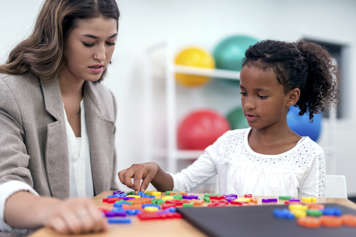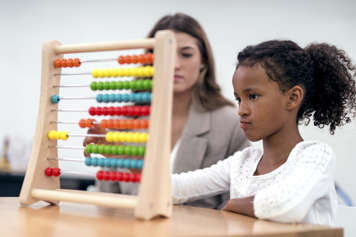A neuropsychological assessment takes a day to a day and a half, depending on your child's age, and is done by a neuropsychologist or an assistant at the hospital. The assessment uses a number of tests and observations to measure your child's thinking, behaviour and problem-solving skills.

Why does my child need a neuropsychological assessment?
A neuropsychological assessment is intended to help your child’s team:
- understand the impact of your child's neurological (brain) condition on their cognitive functioning (their thinking)
- plan the best treatment for your child.
When is a neuropsychological assessment done?
A neuropsychological assessment is done before your child has surgery. It provides baseline information about your child's condition and can help predict if surgery will put your child at risk for language and memory problems.
Another assessment is done one year after surgery to see if there are any changes in your child’s thinking, behaviour and problem-solving skills and to identify areas where your child would benefit from rehabilitation.
The assessment may also be repeated later to:
- record any change in your child's functioning
- provide up-to-date information if required
- record your child’s functioning at important transition points in their life, such as starting high school or post-secondary education
- help with career planning.
How do I prepare my child for the assessment?
- Explain the assessment to your child in words they understand. For instance, tell your child that the testers want to find out how they think about, learn and remember things.
- Help prepare a young child by explaining the tests, answering questions and using drawing and special toys such as puzzles and blocks.
- Prepare an older child by telling them the assessment is like a fun test at school.
Regardless of age, put your child at ease by explaining that there will be no injections or painful procedures.
What types of tests are done during the neuropsychological assessment?
Not all tests are done on all children. The specific tests will depend on your child's:
- age
- level of skill
- ability to co-operate
- seizure history
- medication history
- behaviour issues
- school performance.
The assessment measures the following general skills:
- intelligence: your child's overall knowledge, thinking and problem-solving skills
- perception: how well your child's brain integrates information that is coming in, for example being able to copy shapes that are shown to them
- motor function: your child's muscle control
- attention: your child’s ability to focus on tasks that continue for some time
- memory: how well your child learns and remembers new information, for example answering questions about a story they have just been told
- working memory: the ability to keep something in mind while doing another task, for example taking directions to a location and finding it on a map
- language skills and vocabulary: the ability to understand and use language.
- concept formation and problem solving: how well your child solve problems that they have not seen before
- planning and organization: how your child plans and organizes
- processing speed: how quickly your child can think
- academic skills: how well your child can read, write and do basic math
- behaviour, emotions and personality: whether your child is depressed or anxious or has any behaviour problems. This is based on what the tester sees during testing as well as any reports on your child’s behaviour at home or school.

You may be asked to take part in some of the tests, especially with a young child.
How long does the assessment take?
The baseline, or first, assessment usually takes a full day, with breaks for rest and lunch. The length of the assessment partly depends on your child's age and attention level and how fast they can work. Some children may need to have more than one appointment across more than one day.
What should I expect after the assessment?
Once the assessment is done, the neuropsychologist will score the tests and interpret the results in light of your child's medical history.
The report of your child’s neuropsychological assessment will go into your child’s hospital medical record and be shared with your child’s epilepsy team when they are discussing your child’s condition at team meetings. Outside of these situations, your child’s team will treat the information as confidential and share it outside the team only if required by law.
When will I get the results of the assessment?
A few weeks after the assessment, the neuropsychologist will send a report to you and your referring doctor. You will be able to meet with a psychologist to discuss the results a few weeks later.